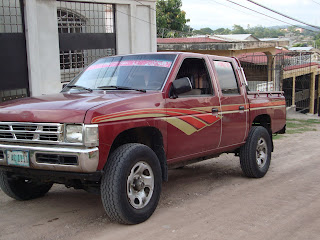
The deaneries will have workshops in their deaneries based on what they learned at the workshop.
I had a major role in trying to pull things together – preparing materials, making sure things were set up and ready to go, money matters, etc. I also had one short presentation – as well as the welcoming and the closing evaluation.
The workshop went well, though there were several glitches. One priest who was supposed to do three presentations canceled over the weekend and called a priest to ask him to do his talks. The priest who replaced him didn’t have any material and so had to wing it. Another priest asked another priest to do something at the last moment. Also, I wanted to give all the deaneries a guide to help them with their workshops, but no one gave me material and so I put together a guide on my own. It also ending up being a resource for the priests who gave the replacement presentations. This, of course, tested my patience and my attention to details.
But it went well, after all.
Padre Amílcar had the first theme – What is Catholic Social Doctrine? One of his points was that whatever you use as a definition it needs to be related to the reality of the people – it’s not merely concepts that are generalized, not related to the reality of the situation.
This is very much what Pope Paul VI was referring to in a 1971 document (Octagesima Adveniens, ¶4) where he insisted on the importance of the response of the local church and not relying on universal pronouncements.
In the face of such widely varying situations it is difficult for us to utter a unified message and to put forward a solution which has universal validity. Such is not our ambition, nor is it our mission. It is up to the Christian communities to analyze with objectivity the situation which is proper to their own country, to shed on it the light of the Gospel's unalterable words and for action from the social teaching of the Church.And so they divided up into four groups to pull together a concept of Catholic Social Teaching which speaks to the situation in 2010 in the diocese of Santa Rosa de Copán. Four concepts were shared and then the entire group pulled together a common concept to express what Catholic Social Teaching is for the diocese of Santa Rosa:
Catholic Social Doctrine [for the diocese of Santa Rosa de Copán] is the Gospel of Life which teaches us and illuminates for us the path toward a full liberation of the enslaved and oppressed, a liberation which arises from the church base communities living the triple ministry [prophetic, liturgical, and social].For me, this was a significant moment – relating Catholic Social Thought to the reality of the diocese. It is the challenge for the rest of the workshops we’ll be doing.
Padre Candido led a discussion on the reality of Honduras - basing much of it on the reflection translated in the previous post.
We also discussed the roots of Catholic Social Thought in Scripture, Tradition and the Magisterium of the Church.
In the material I had prepared there was a quote from the beloved Franciscan saint, San Antonio de Padua:
If you don't help the poor person but close your heart to him, I say that you are sinning mortally for you are not [living] in God's charity; if you had God's charity you would willing help the poor person.Quite different from the normal way most people think of Saint Anthony. He is most often invoked for finding lost articles. A ditty I learned as a kid goes
Saint Anthony, Saint Anthony, please come around.Most people have a rather saccharine understanding of Saint Anthony and don't associate him with themes of Catholic Social Teaching and would probably be surprised at his teachings on poverty and riches. But then, he was a Franciscan.
Something was lost and something was found.
Jesus was lost and Jesus was found;
Dear Saint Anthony, please come around.
And, of course, they'd be surprised at Church Fathers like Saint Ambrose who said:
Our Lord God wished the earth to be possessed by all in common, offering their products for the common good. But it's avarice which allocates the right to property.I look forward to seeing how the workshops go in the deaneries and hope to get out to a few of them. I also plan to make sure that we plan the next diocesan workshop with sufficient time to do a better job.
________________________________
An aside
An aside
Here's the car I just bought - my first pick up, my first four wheel drive vehicle, and the first diesel. It's in the shop now - an oil leak - but soon it will be easier for me to get out to the remote villages. Hopefully St. Ambrose wouldn't be too disturbed with my purchase.







4 comments:
Congrats on the truck! Hope everything will go well for you while driving out in the remote villages. I'm hopeful our paths will cross soon as both Kristen and I are excited to see more of this beautiful country.
Nice truck, Brother John.
I suspect that the truck will get used in ways that St. Anthony will approve.
The issue of local focus and application of the gospel is central to understanding the human dynamics of rural Latin America... and to understanding a fundamental struggle within the Catholic Church that started with Vatican II and continues today.
--Charles
Amazing blog.
Found you by your comment over at Border Explorer.
May I blogroll you?
You do a superb job of exposing the truth.
Suzan
Suzan,
Feel free to blogroll me.
John
Post a Comment